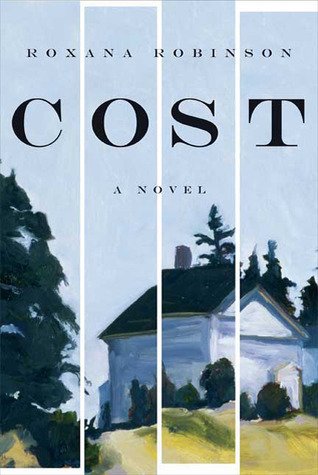
Recent Reviews

Cost by Roxana Robinson
I recently reread Roxana Robinson’s 2008 novel Cost. If you haven’t read this book, you are in for a treat. Not because the story is happy—it is not—but because Robinson is a gifted connoisseur of deconstructing family dynamics. Her elegant prose penetrates the emotional interiority of her characters with precision and empathy.
On one level, the story is about a 22-year-old man named Jack Lambert, who is a heroin addict. On another level, the story is about how a destructive family dynamic is passed from generation to generation, resulting in one family member unconsciously being assigned to carry the burden of the damage.
Jack’s parents, Julia and Wendell, are divorced. When Jack’s older brother Steven tells his parents that Jack’s drug use has become dangerous, they each choose denial, but soon an intervention is arranged. Jack’s parents, brother, grandparents, and aunt gather at Julia’s summer home in Maine. When the addiction counselor asks them to write about what they love about Jack, they all bristle. “Love is not a word their family used.” Though the family members have pleasant public personas, their past anger, hurt and distrust lurks when they are together.
Robinson writes about Jack’s heroin addiction with intimacy and captures the obsessive thoughts of an addict looking for his next fix. She also depicts the emotional cost to Jack’s family as his stealing and lying intrude on their lives. Their feelings alternate between grief and guilt to fury and rage. This theme propels much of the plot.
(Spoiler Alert) However, the more compelling theme is the family dynamic that has pathologized Jack since childhood. “He was always a wild center of the storm.” Jack carried the burden of his parents’ and even his grandparents’ choices. The ambiguity of Jack’s paternity was never discussed. It was unconsciously known. Jack’s father Wendell says at the intervention, “I think I was too hard on Jack.” And then later, “It’s like hearing that he is Chinese or that he’s not my son.” Wendell knows and doesn’t know, and Julia is not sure.
This powerful novel about the scourge of heroin addiction and the scourge of toxic family dynamics long ignored is heartbreaking. Robinson’s ability to illuminate each family member’s past and present interiority is extraordinary. Jack pays a painful price for his addiction as does his family. Eventually, there can be a cost of not dealing with the past. 5/5

this is my daughter by Roxana Robinson
Though Roxanna Robinson’s book This is My Daughter is not as tightly constructed as her brilliant novel Cost, I believe Robinson is one of the most psychologically astute writers on the subject of family dynamics.
In this novel, Robinson explores the emotional fallout of divorce, especially on children. Emma Goodwin and Peter Chatfield live in the fast moving, well-to-do world of New York City. Their first marriages have ended and they begin to date. Though Emma and Peter seem to possess only superficial understandings of their prior marriages, Robinson provides her readers insight into their early lives and backgrounds.
Their relationship proceeds with ease except for the tension created by the interactions between their daughters. Emma’s daughter Tess is only 3, but Peter’s daughter Amanda is 8 and already troubled. Peter and Emma eventually marry and Amanda’s bossiness escalates to full bullying. Emma observes Amanda belittling Tess and finds it difficult to manage her feelings of resentment even though she knows she should. Emma’s own guilt about divorcing Tess’ father makes her vigilant in meeting Tess’ every need. Meanwhile, Peter is embarrassed and ashamed by his daughter’s behavior and yet requires her to spend summer after summer, holiday after holiday, with Emma and Tess. Peter cannot see his daughter for who she is: an angry, needy, traumatized child of divorce in need of thoughtful and mature parenting.
Roxana Robinson shares the inner thoughts of her characters as they reflect on this family predicament. With great empathy, Robinson conveys the emotional struggle within each of these characters. There is no simple solution for complex family dynamics, especially when the children just want life to return to the familiar pre-divorce routines.
The first two sections of the book could have been better edited, but the last third of the book crescendos to a compelling end, brought on by a crisis. Peter and Emma’s desperation to create a new family unit blinds them to the individual needs of their daughters. Their divorces leave a trail of emotional debris that they never say and never attempted to clean up. Amanda especially needs to be comforted and counseled. She needs love and support from Peter and Emma, not judgment and anger. Peter’s own narcissistic needs make him late to this acknowledgement, but he does arrive and actually begins to see his daughter with greater clarity. The good news is that Peter and Emma both reflect on their prior decisions and offer each other insight about their behaviors. It is not as if this family lives happily ever, but it feels that they will move forward with more understanding about themselves and each other. Really, what more can you ask for?
